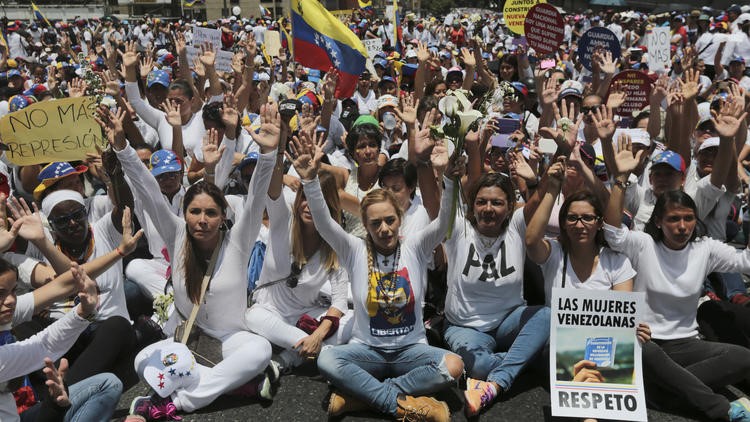- Apply
- Visit
- Request Info
- Give
Published on May 17, 2017
Women March in Venezuela
Just one day after Donald Trump was inaugurated as the 45th President of the United States women around the world mobilized in opposition to his campaign's divisive rhetoric and marched in cities all across the globe. It is estimated that over 3,000,000 people marched in the United States, scrawling over 600 cities and towns. This impressive organization started from a Facebook post and turned into a worldwide event which drew on men and women of all classes and races. The Women's March is reported to be the largest political protest in American history. For a brief moment in our nation's history it appeared that the people where dedicated to holding their leadership accountable, but opposition movements have diminished here in the United States as the people appear to be giving Trump the space to prove his presidential platform. But is this the route the American people should be taking? How do we stand up for our nation's sacred institutions of justice and law? The civil mobilizations occurring now in Venezuela demonstrate how important it is to ask ourselves these questions sooner rather than later.

The people of Venezuela continue to march in protest of their country's president, Nicholas Maduro. Falling oil prices have caused the Venezuelan economy to decline, leading to high inflation rates and unemployment. The country currently suffers from severe shortages of food, medicine, and goods and continue to debilitate the people of Venezuela. As a result of these dynamics, opposition to Maduro's leadership have emerged. This opposition has grown more supporters over recent weeks as Maduro's regime continues to use the court system to serve their agenda. Maduro has used The Supreme Court to strike down almost every law adopted in 2016 by the opposition party of the country's National Assembly. Maduro has also used the court to impose a political ban on opposition leader, Henrique Capriles. As a result, the people have taken to the streets, calling for an emergency presidential election to remove Maduro from office.
Maduro's regime continues to use excessive military force to detain protesters and political opponents. The BBC reports that over 36 people have died and hundreds have been injured in protests over the last few weeks. As a result of this violence, the women of Venezuela organized a Women's march on May 6th to call attention to the impending humanitarian crisis. This march of solidarity was led by opposition MP's and has been called the "Women's March against Oppression." As thousands of women gathered across Venezuela to show their opposition to Maduro, they banged pots and pans to draw attention to their demands of holding fair elections. These marches show that women are not willing to stand on the sidelines any longer, and are willing to take the risks to ensure the security of democracy.
Written by Valerie Bak

